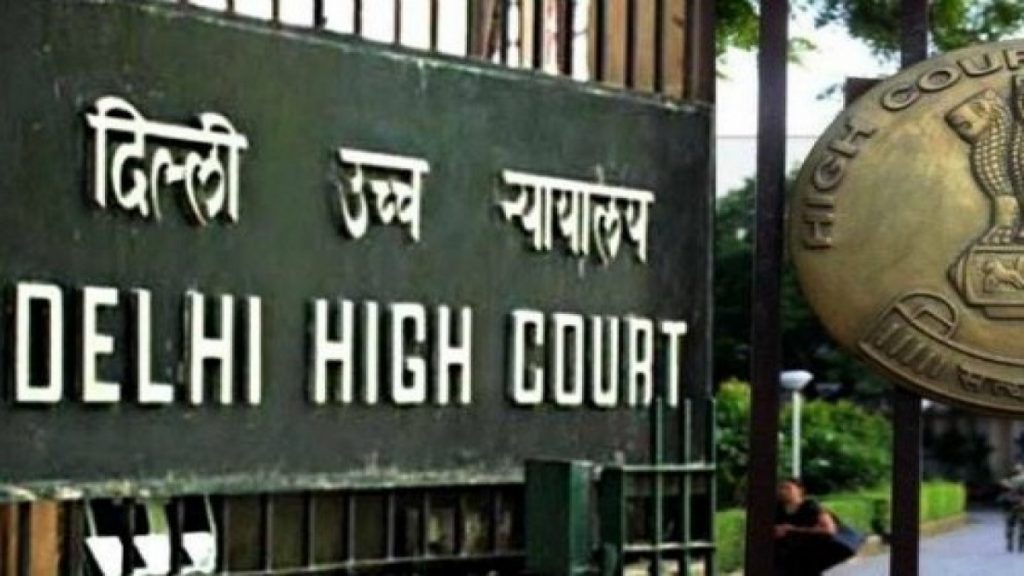New Delhi: Delhi High Court has directed the city government to set up a one-stop centre in every district that can be used as a central police station where all crimes against women and children in the town could be registered in compliance with the Supreme Court’s 2018 directions.
The high court said the state governments are already in contempt in not adhering to the time limit fixed by the apex court in setting up such centres within a year from the date of judgment passed, that is, December 11, 2018.
“It transpires that even though the decision in Nipun Saxena was rendered by the apex court December 11, 2018, the directions contained in paragraphs 50.7 and 50.9 have yet not been complied with. We are, therefore, directing the GNCTD to act under Section 228-A (3) IPC and lay down the criteria as directed by the apex court.
“The State is also directed to set-up one stop centres in every district in compliance with the judgment of the apex court…,” a bench of Chief Justice Satish Chandra Sharma and Justice Subramonium Prasad said.
As per Section 228-A (3), whoever prints or publishes any matter in relation to any proceeding before a court with respect to an offence referred to in sub-section (1) (rape and sexual assault) without the previous permission of such court shall be punished with imprisonment of either description for a term which may extend to two years and shall also be liable to fine.
The provision also states that the printing or publication of the judgment of any high court or the Supreme Court does not amount to an offence within the meaning of this section.
The order, which was passed January 24, was made available on the high court’s website Friday.
The high court’s order came on a petition against revelation of identity of the Hyderabad rape victim in 2019 by certain media houses.
Petitioner, Delhi-based lawyer Yashdeep Chahal, had approached the high court in 2019, alleging that there was blatant violation of Section 228 A of the Indian Penal Code (IPC) by individuals and media houses who published elaborate reports revealing the identity of the victim and the four accused in the Hyderabad rape case on various online and offline portals.
A 26-year-old doctor was allegedly raped and killed in Shamshabad, Telangana, by four men on the night of November 27, 2019.
Section 228 A makes disclosure of identity of victim of certain offences, including rape, punishable with imprisonment of a term that may extend to two years and a fine.
The high court was informed by the amicus curiae, appointed to assist the court in the matter, that a similar issue regarding compensation to the victims and criminal action under Section 228 A of the IPC is pending before the High Court of Telangana in a batch of petitions.
“Since a similar issue is pending before the Telangana High Court, this court does not find it appropriate to initiate proceedings against media houses and reported individuals or to direct the investigating authorities to take cognisance of the offence,” the bench said while disposing of the plea.
In the order, the high court referred to the top court’s December 2018 judgment in which the states and Union Territories were asked to set up at least ‘one-stop centre’ in every district of the country in the interest of children and women within one year from the passing of the verdict.
The apex court had said that these one-stop centres can be used as a central police station where all crimes against women and children in the town or city are registered and they should have well trained staff who are sensitive to the needs of children and women who have undergone sexual abuse.
“This staff should be given adequate training to ensure that they talk to the victims in a compassionate and sensitive manner. Counsellors and psychiatrists should also be available on call at these centres so that if necessary the victims are counselled and in some cases it would be appropriate if the counsellors question the victims in a manner in which they have been trained to handle the victims of such offences,” it had said.
It had further said that these one-stop centres should also have adequate medical facilities to provide immediate medical aid to the victims and the medical examination of the victims can be conducted at the centre itself.
The apex court’s decision had come on a petition seeking directions to ensure that victims of rape and children who are victims of sexual abuse should be protected so that they are not subjected to unfortunate ridicule, social ostracisation and harassment.
PTI
